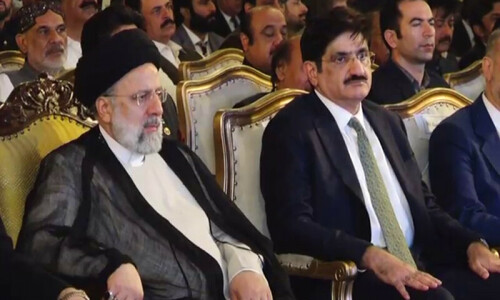Cleric murder case: Non-bailable arrest warrant issued for Musharraf

ISLAMABAD: A local court in Islamabad on Thursday issued a non-bailable arrest warrant against former military ruler Gen (retd) Pervez Musharraf in a case pertaining to the murder of former Lal Masjid cleric Ghazi Abdul Rasheed.
During today's proceedings, counsel for the former president moved an application in the court requesting complete exemption for Musharraf from appearing in the court as he was not well.
An 11-member medical board constituted by the Sindh government to ascertain whether retired Gen Pervez Musharraf was able to travel to appear in court.
Know more: Musharraf undergoes medical check-up
Additional Sessions Judge Wajid Ali Khan rejected the exemption plea and issued a non-bailable arrest against Musharraf over his failure to appear in the court despite repeated summons.
The judge also cancelled Musharraf's surety bond worth Rs100,000 which was submitted in the previous hearing.
The hearing of the case was subsequently adjourned to April 27.
Musharraf's counsel had previously questioned the jurisdiction of the court as a case regarding Lal Masjid is already pending in Supreme Court. He had also requested exemption from appearing in court for this case.
Also read: Court issues arrest warrant for Musharraf in Lal Masjid case
In 2013, police had registered a case against Musharraf over the alleged murder of cleric Rasheed and his wife during the Lal Masjid military operation.
Musharraf faces a string of court cases dating back to his 1999-2008 rule, including the death of Ghazi, one of more than 100 people killed after Pakistani troops stormed the Red Mosque in Islamabad on July 10, 2007.
He faces treason charges over his imposition of emergency rule in 2007 – a historic first in a country ruled for half its existence by the military.
He further faces murder accusations over the 2006 death of Baloch leader Nawab Akbar Bugti and the 2007 assassination of former Prime Minister Benazir Bhutto.
In June, the Supreme Court suspended a decision which would have allowed Musharraf to leave the country.











































